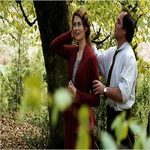How and Why: Analyzing a Novel Using Elements of Literature

Literary analysis requires Literature students to figure out the reasons on why the novel is written and how. What comes next?
It should be natural to discuss the merits of a particular novel from your own perspective, as you attempt to relate it to your own. This is a good strategy, as you want the attention of your readers (or professor), hoping to keep their interest until the very last page. It could be the only way to analyze the fairy tales that Disney Films turn into animated features and then remade into live-action movies. It won't be the case with a classic. Think of "Lady Chatterley's Lover" and the 1960 obscenity trial that lead to the acquittal of Penguin Books, which published the novel. D.H. Lawrence's graphic description of the illicit affair between the former Constance Reid with Oliver Mellors, which would still shock the current generation of readers, could be a study of the freedom of expression. It should be interesting to compare the novel to the low down of the Internet era; try to recall the countless individuals who would revel in their birthday suit. These people want attention, if not stardom. Lawrence would sneer at such a thing. If you think otherwise, write a thought-provoking essay. This is one intriguing case, and there are others to think and write about.
There are other instances when your perspective won't be good enough. This is your chance to provide more details, as you discuss the book in terms of the specific choices that the author makes for his (or her) work. If you're aspiring to write a book, you would like the next part.
5 Things That Your Essay Must Point Out
Character. "Catcher in the Rye" would be a good illustration of this particular element. Does Holden Caulfield come across as a spoiled, entitled brat? J.D. Salinger might not have intended to depict the young man in that manner, but this seminal novel could be a case of first impression. If you think that he's an antagonist, you must be able to cite certain virtues which would oppose the current generation to Holden's. You can also decide if Holden is a dynamic character (or static). Your professor would be very impressed if you do your research (and homework) well.
Social impact. You may be thinking of reward work that you gain from volunteering, and you're right about it. This element has another meaning, and it has something to do with social impact. You may be confused after remembering "Les Miserables", but you're missing the point. Think of a political (or social) issue that would change the landscape. Joseph Conrad's novels should be good examples. If you don't have a clue about colonialism, you could do a research on the plight of Native Americans back then. And you can work your way from there. It’s up to you to think of another book.
Imagery. You should know that authors would describe certain places that mean a lot of them. It could be an emotional response, also physical at times. In the case of "Rebecca", Daphne du Maurier didn't devote the first chapter on her meticulous description of the Manderley estate for nothing, as readers would discover other details in the succeeding chapters. The book title should give you lots of hints. (And it doesn't matter if you didn't see Alfred Hitchcock's taut, if not atmospheric, treatment of the novel.) You might confuse imagery with setting, as the latter provides the plot with historical or cultural context.
Structure. This elements demands focus, as you must look for signs of shifts in the plot. It could also be repeated elements, which would emphasize something. "Moby Dick" would be the good example here. Ernest Hemingway often used the elements in his novellas and short stories, which should reveal a number of traits that the author would hold in high esteem. It won't be wise to compare it to the present times, though. It won't be the case with other books, which you should know after reading the first half of the book. The final element is related to this one.
Symbolism. If you have a vague idea about this element, you can do an exercise on the popular books that you have read. "Harry Potter" would warn readers about the danger of racial purity, which is not uncommon in the darker chapters of world history. On the other hand, Robert Louis Stevenson would do a great job in discussing man's struggles with primal instincts in "The Strange Case of Doctor Jekyll and Mr. Hyde". Remember that there's danger in taking in more than you can know. Ask questions, if not a second opinion, whenever you're undecided on your line of thought.
Beyond the Literal
You’re analyzing a prose, so don’t forget the figures of speech. There’s no need to enumerate it all, as a few would do. Make sure that your picks would be backed up with information that should make your perspective more interesting than the others. Trust your instincts on this one.



